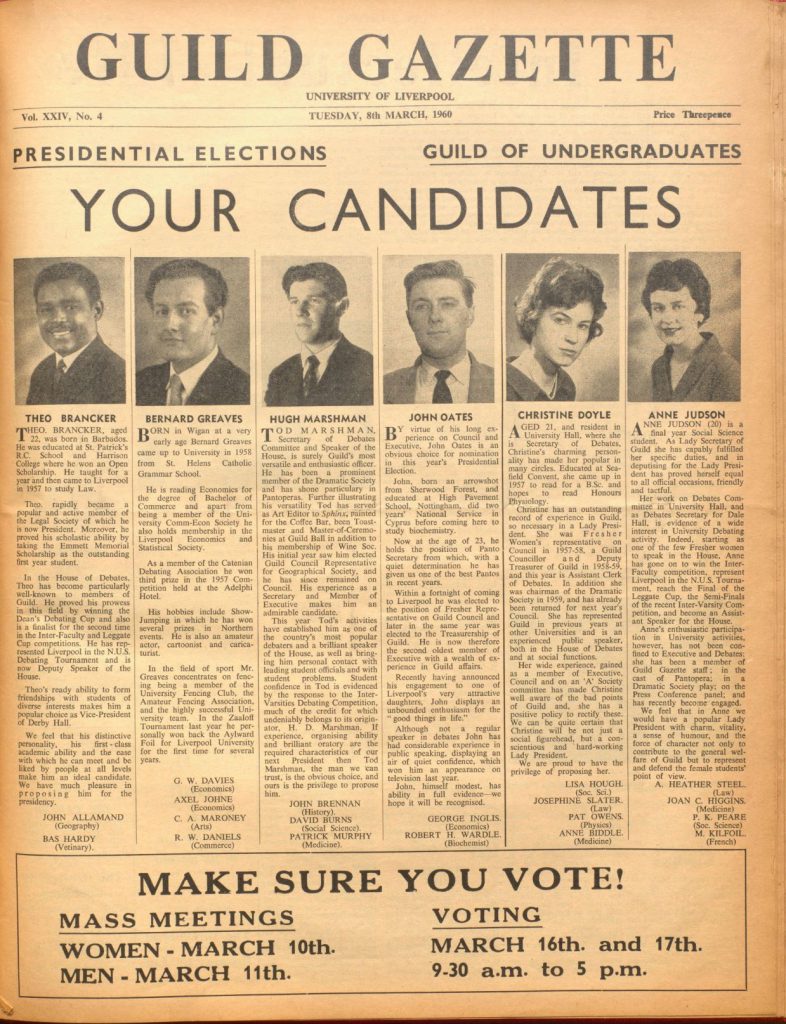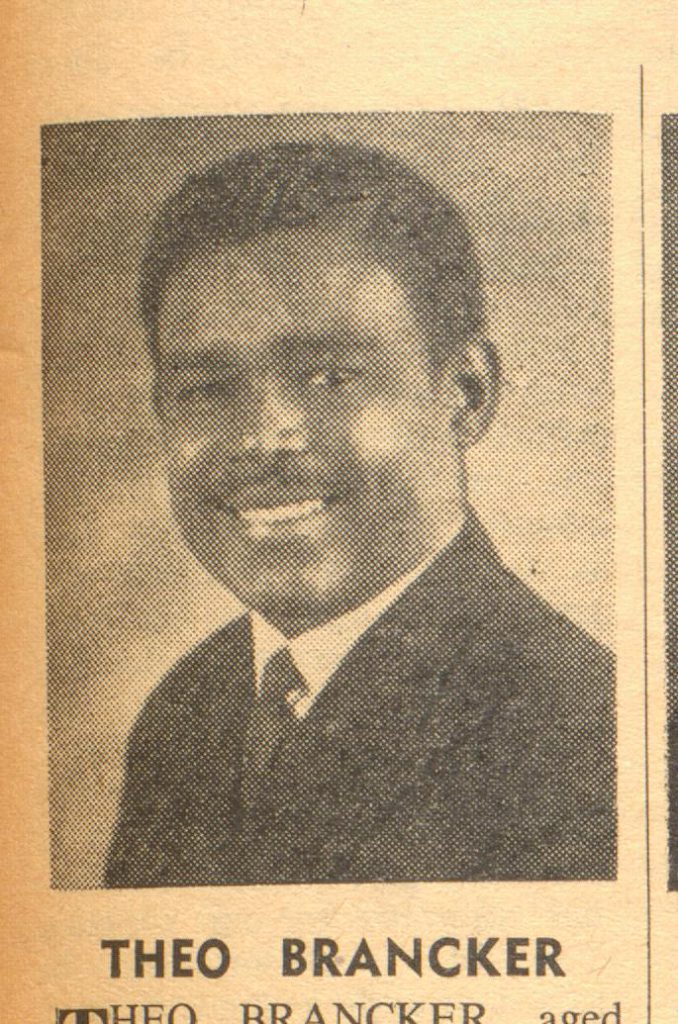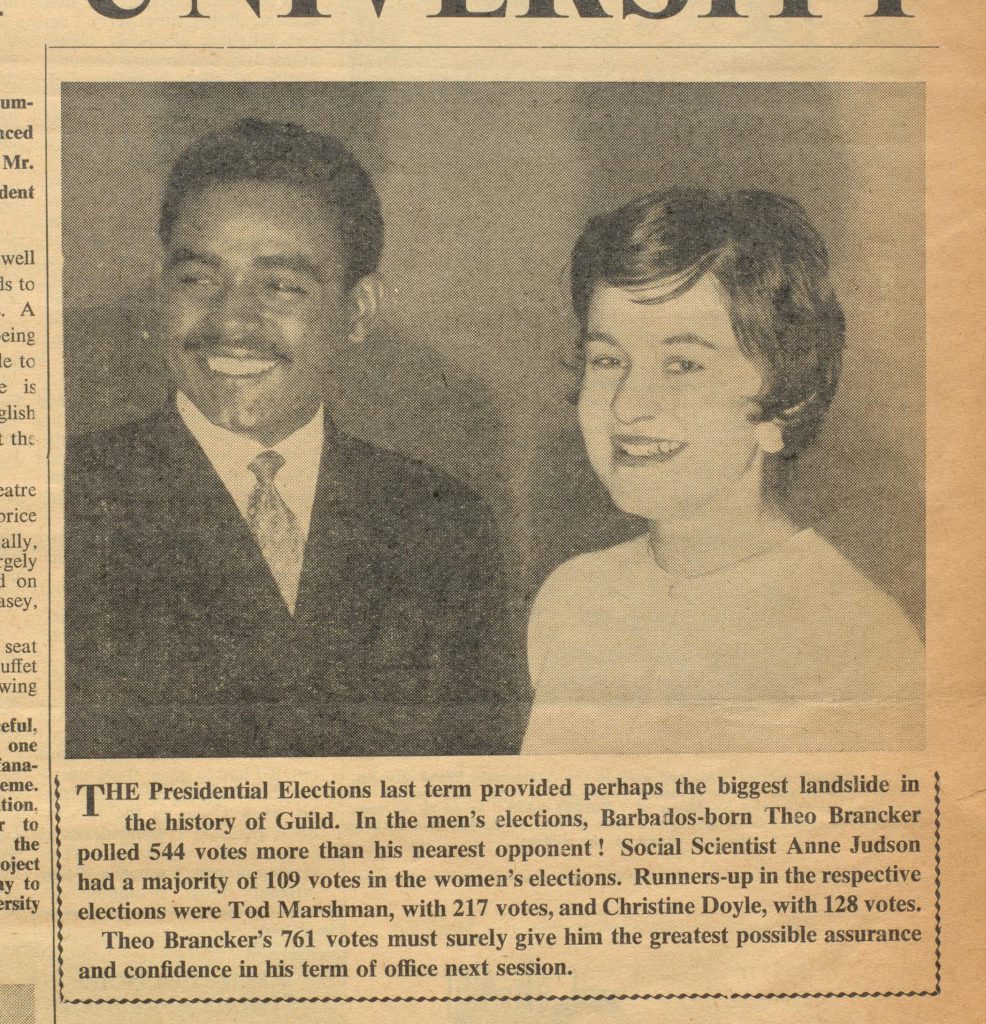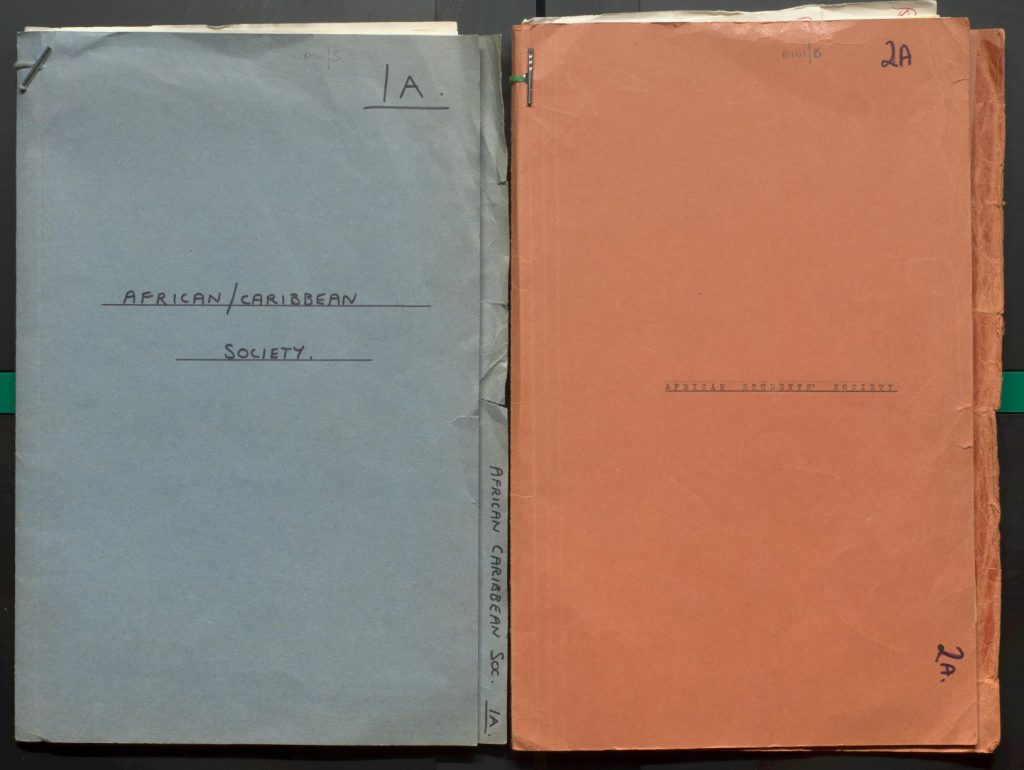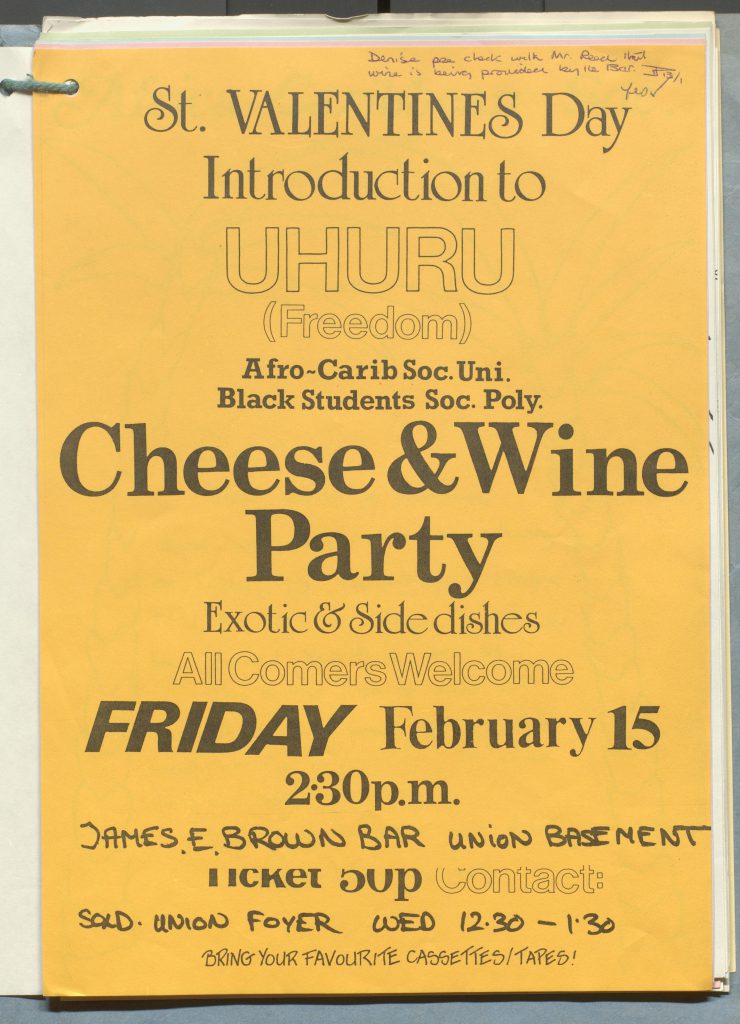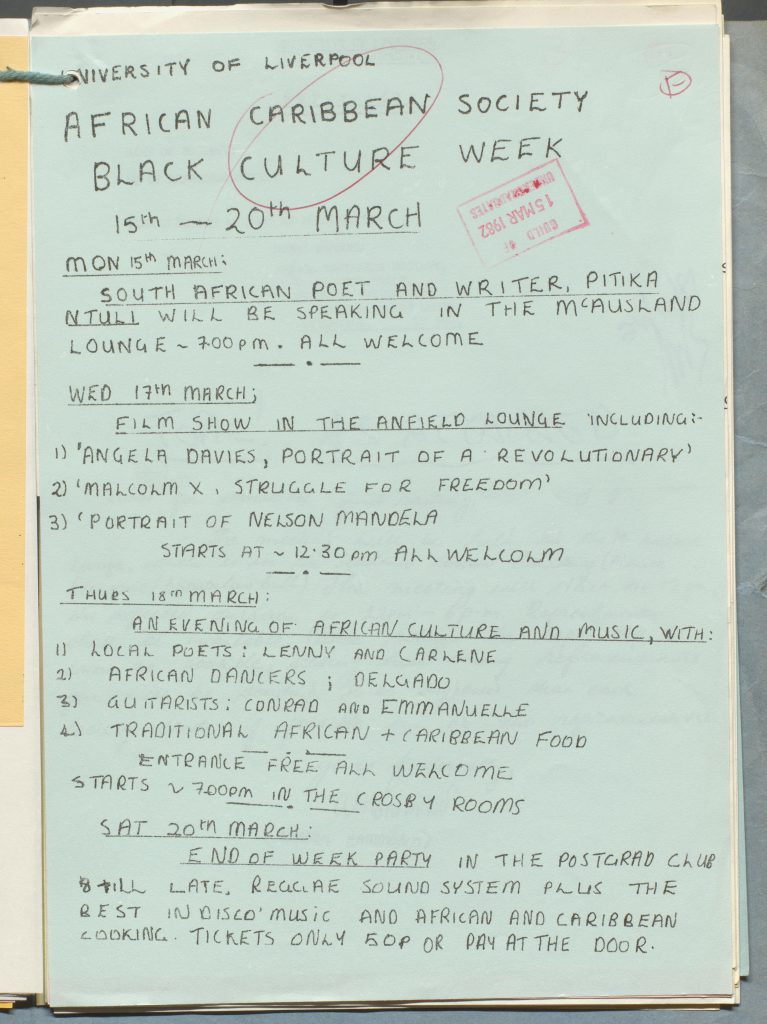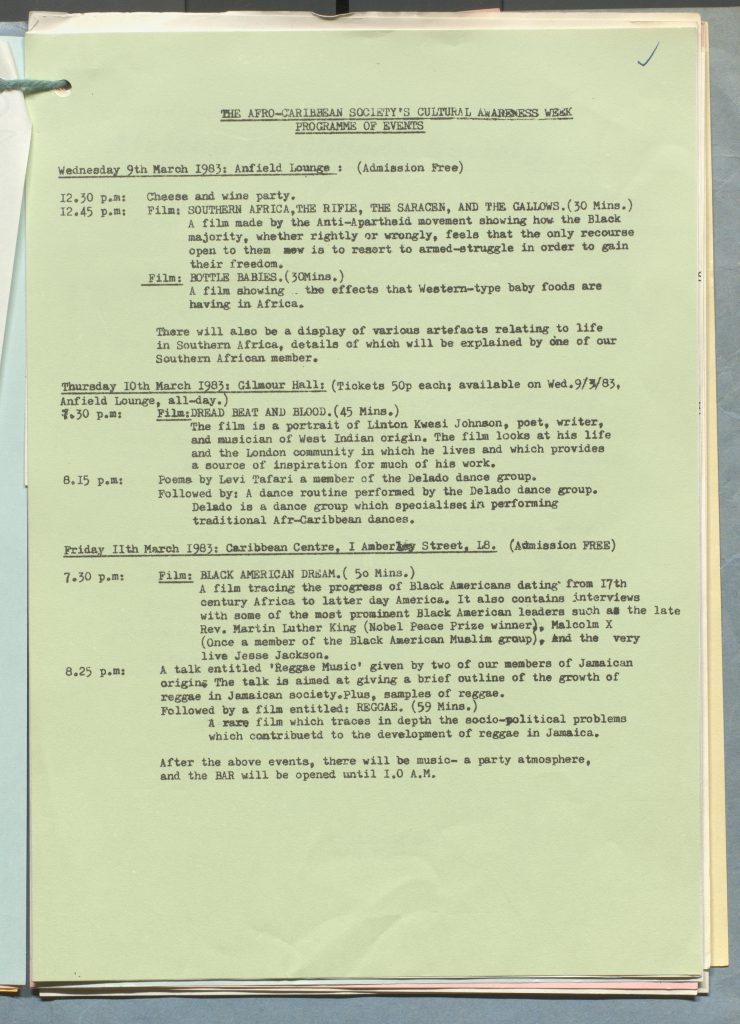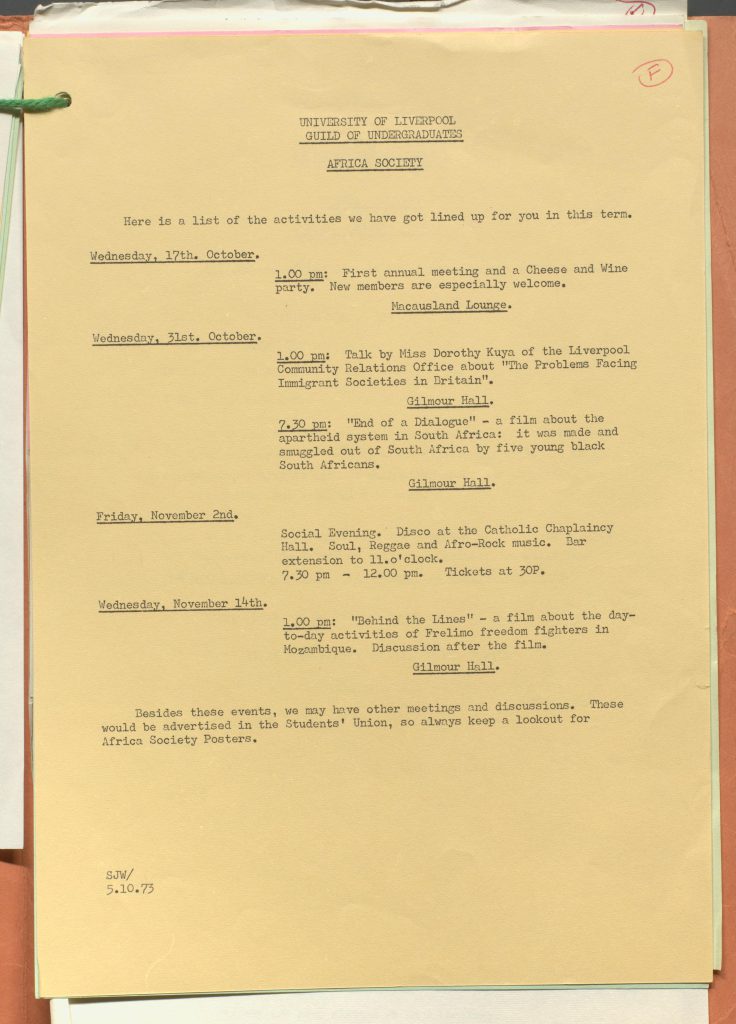In celebration of Black History Month 2021, this post highlights material from the University Archive that relates to the lives and experiences of Black students at the University of Liverpool. It also introduces the work that Special Collections and Archives (SCA) is undertaking to deal with racial inequalities and discrimination, within both professional practices and the collections themselves.
See our Black History Month post from earlier this month: Black History Month 2021: A Celebration of Black SF/F.
First Black president of the Guild of Students
The University Archive contains issues of the Guild Gazette; the publication of the Guild of Students here at the University of Liverpool. The Guild Gazette launched in 1937 and ceased printing in 1999 (it was replaced by the Liverpool Student newspaper, the official publication of the University of Liverpool, Liverpool John Moores, and Liverpool Hope student unions), and it is a rich resource for accessing the life of University of Liverpool students in the twentieth century.
The Guild Gazette covered the Guild of Undergraduates Presidential elections for the session 1960-61 within a number of issues, and these allow us to learn more about the election of the first Black president of the University of Liverpool Guild (in fact, the first Black president of University student unions in the UK): George Eustace Theodore Brancker, known as “Theo” (c. 1948-2002).
Theo followed in his father’s footsteps by studying law, as Sir John Eustace Theodore Brancker was a lawyer, MP, and President of the Senate of Barbados (1971-1976), as well as a well-known campaigner for the rights of Black people in Barbados.
Theo was a popular and academically gifted student, as his profile in the Gazette conveys (archival ref: PUB/3/7/23):
Theo Brancker was born in Barbados. He was educated at St Patrick’s R.C. School and Harrison College where he won an Open Scholarship. He taught for a year and then came to Liverpool in 1957 to study Law.
Theo rapidly became a popular and active member the Legal Society of which he is now President. Moreover, he proved his scholastic ability by taking the Emmett Memorial Scholarship as the outstanding first year student…
We feel that his distinctive personality, his first-class academic ability and the ease with which he can meet and be liked by people at all levels make him an ideal candidate.
Guild Gazette, Tuesday 8th March 1960
The Guild Gazette article from the 16th of May captures the details of Theo’s election win (archival ref: PUB/3/7/23):
The Presidential Elections last term provided perhaps the biggest landslide in the history of Guild. In the men’s elections, Barbados-born Theo Brancker polled 544 votes more than his nearest opponent!…
Guild Gazette, 16th of May 1960
Theo Brancker’s 761 votes must surely give him the greatest possible assurances and confidence in his term of office next session.
Theo completed his term as President, overseeing a tumultuous year for the University’s annual Panto Day, whereby several unruly students caused damage and nuisances around the city. He returned to Barbados with his wife and children in the later 1960s, and worked to become the Clerk of the House of Government. He died in 2002.
The Guild of Students Society Files
The Guild of Students section of the University Archive contains a deposit of files relating to society activities, mainly for the period 1960-1990. These files allow researchers to access the activities of the societies, and include flyers for events and socials. In the files for the African Students Society (archival ref: A161/6; also referenced as the “Africa Society” and “African Society”) and the African Caribbean Society (archival ref: A161/5; also referenced as “Afro-Caribbean Society”, “African-Caribbean Society”, and the “African & Caribbean Society”), we are able to identify activities organised by Black students. Many of the society files in this contain limited references to named individuals, so although many other files will naturally include events organised by students of all backgrounds, it is these files in particular whereby explicit references to Black students can be found.
This flyer advertises a “St Valentine’s Day Cheese and Wine” party (c. 1980s), held in conjunction with the African Caribbean Society’s sister society at the Liverpool Polytechnic (now Liverpool John Moores University), the Black Students Society. The event included an “Introduction to Uhuru.” Uhuru is the Swahili word for freedom. As such, the event could have been focused on the ideological concept of freedom, or more likely relates to the Uhuru Movement (a socialist movement led by the African People’s Socialist Party).
The African Caribbean society file also contains a flyer for “Black Culture Week”, held in March 1982. The events for the week included a visit by the South African poet Pitika Ntuli (1942-), film screenings and music and dance displays.
Another flyer for the society’s “Cultural Awareness Week” in 1983 includes similar events as the previous year, such as film screenings and dance displays, including some which took place in the Caribbean Centre in Toxteth.
The African Society file includes a flyer for the activities of the society in October/November 1973. This included a talk by anti-racism campaigner Dorothy Kuya (1932-2013, the namesake of the recently renamed Hall of Residence at Greenbank Student Village) and a film screening of a movie about the oppression of Apartheid “smuggled out of South Africa by five young Black South Africans”.
All of the archival material provided in this post is available to view in the SCA Reading Room by appointment.
Our work
SCA is currently implementing project-based work that aims to deal with historic inequalities (such as the legacies of slavery and colonialism) within both the collections and the professional practices of the department.
The long-term aim of this project is to ensure that future work undertaken by SCA will embed inclusivity and equality as fundamental principles. Investigations will be undertaken to understand the full nature of these connections and the extent of the relevant material within the collections.
The project will develop through a number of avenues, including (but not limited to):
- Reviewing offensive and outdated language within metadata
- Reviewing collections management and development policies
- Employing researchers to investigate the content of the collections, including BAME researchers
- Presenting our collections sensitively, honestly and transparently
- Making our collections as discoverable and accessible as possible to the widest audience
The progress of this project will be communicated at appropriate milestones. However, if you have any questions about this work, we would be happy to hear from you at [email protected]. Watch this space for updates!
